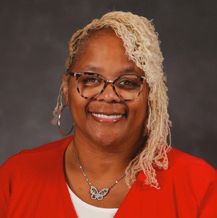Federally Employed Women

What FEW Is
Federally Employed Women (FEW) is a private membership organization working as an advocacy group to improve the status of women employed by the Federal Government and by the District of Columbia government.
Our Focus
FEW empowers our members to fulfill the goals of three core competencies:
Compliance
Legislative
Training
Our Training
FEW is committed to offering valuable career development and leadership training programs— through national, regional, and local FEW meetings, seminars, and conferences—to each member and prospective member.
Our Partners
FEW’s corporate partners receive national recognition and marketing opportunities including: Exposure to our membership and audiences; Branding for products and services and Recognition for supporting innovative programs that improve the outcomes for the advancement of women.
Our Focus
FEW’s organization is three-tiered and consists of National, Regional, and Chapter levels. All three tiers work together to fulfill the goals of FEW’s three major program areas:
Compliance
- Equal Employment Opportunity (EEO)
- EEO Laws
- Civil Rights
- Working relationships with federal departments and agencies
Legislative
Training
- Research and development of appropriate programs and materials
- Promotion of the effective use of such programs and materials.
Our Training
Improve Professional and Leadership Skills While Advancing Workplace Marketability
National Training Program
FEW’s Training Program refers to the teaching and learning activities carried on for the primary purpose of acquiring the knowledge, skills, abilities, and attitudes needed for advancement of career goals.
Regional Training Program
FEW offers stellar training opportunities right in your neighborhood. Be sure to keep checking for additional information!
Webinars
FEW offers online training and presentations of interest for the federal government community.
Scholarships
The FEW Scholarship Programs provide an opportunity for deserving individuals to participate in the National Training Program.
National Partners
Our Partners Make a Difference

Pamela Hall
Message from the FEW PRESIDENT
FEW’s 55th National Training Program
This year’s National Training Program (NTP) intersects with the month we mindfully honor Women’s Equality. We are part of a long history of women and allies fighting for our rights and protecting female wage-earners in the United States of America and in the federal workplace. Recognizing this, we are committed to individually and collectively doing our part to continue advancing women in the workplace. Training is a fundamental tenet and focus area of this great organization, allowing FEW members to expand their knowledge base and grow new skills.





